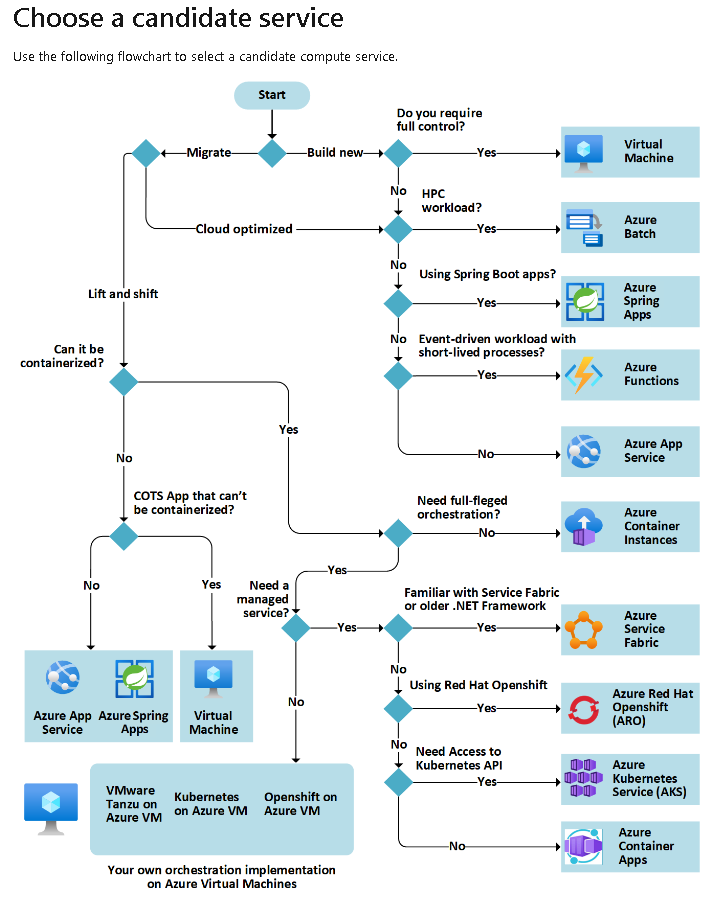Table of Contents
Introduction to Azure Cloud Services
Microsoft Azure offers a wide range of cloud services, including compute, networking, storage, and more, enabling businesses to build, deploy, and manage applications through Microsoft-managed data centers. This guide focuses on two core areas: Azure Compute Services and Azure Networking Services, providing insights into the key offerings and when to use each.
Azure Compute Services Overview
Compute Services are on-demand computing services for resources, storage, and services for different applications. Vendors like Azure and AWS provide these services to run various applications on the cloud.
Different products available are
- Virtual machines
- Virtual Machine Scale Sets
- Container Instances (ACI)
- Kubernetes Services(AKA)
- App Services
- Functions
What is Virtualization in Cloud Computing?
Virtualization enables multiple virtual machines (VMs) to run on a single physical server by emulating hardware. Key features include:
- Emulation of physical machines
- Different virtual hardware configurations per machine/app
- Different operating systems per machine/app
- Total separation of environments
- File systems,
- Services,
- Ports,
- Middleware,
- Configuration,
Top Azure Compute Services
1. Azure Virtual Machines (VMs)
Key Characteristics
- Infrastructure as a Service (IaaS)
- Total control over the operating system and the software
- Supports marketplace and custom images
- Best Suited for
- Custom software requiring system configuration
- Lift and shift scenarios
- Can run
- Web apps & web services,
- Databases
- Desktop applications,
- Jump Boxes,
- gateways, etc.
2. Azure Virtual Machine Scale Sets
Key Characteristics
- Infrastructure as a Service(IaaS)
- Set of Identical virtual machines
- Built-in auto scaling features
- Designed for manual and auto-scaled workloads like web services, batch processing, etc
3. Azure Container Instances (ACI)
Key Characteristics
- Use the host’s operating system
- Emulate an operating system(VMs emulate hardware)
- Lightweight(no O/S)
- Development Effort
- Maintenance
- Compute & Storage requirements
- Respond quickly to demand changes
- Designed for almost any scenario
4. Azure Kubernetes Service (AKS)
Key Characteristics
- Open-source container orchestration platform
- Platform as a Service
- Highly scalable and customizable
- Designed for high-scale container deployments(anything really)
5. Azure App Service
Key Characteristics
- Designed as an enterprise-grade web application service
- Platform as a Service
- Supports multiple programming languages and containers
6. Azure Functions (Function Apps)
Key Characteristics
- Platform as a Service
- Serverless
- Two hosting/pricing models
- Consumption-based plan
- Dedicated plan
- Designed for micro/nano-services
Azure Compute Services Summary Table
| Service | Type | Best For |
| Azure VMs | IaaS | Custom deployments with full control |
| VM Scale Sets | Scalable, managed Kubernetes deployments | Autoscaled VM workloads |
| Container Instances | PaaS | Lightweight, quick-start container hosting |
| AKS | PaaS | Scalable, managed Kubernetes deployements |
| App Service | PaaS | Enterprise web app hosting |
| Azure Functions | Serverless (PaaS) | Microservices with event-based triggers |
Reference – https://learn.microsoft.com/en-us/azure/architecture/guide/technology-choices/compute-decision-tree


Leave a Reply